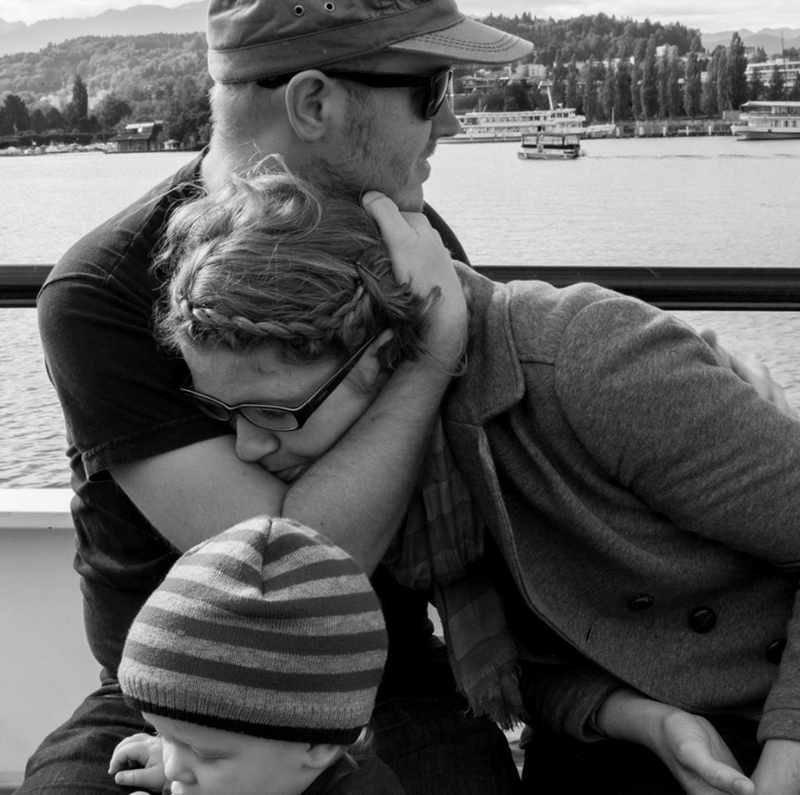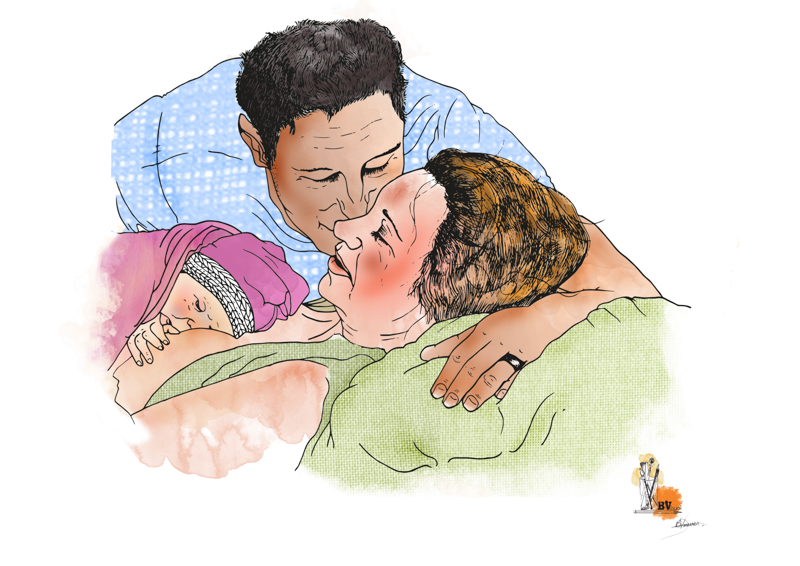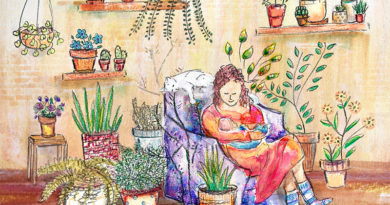What A New Mother Means When She Asks for “Support”
I remember a day early in my second boy’s life; I was struggling. I was physically and emotionally exhausted, overwhelmed, and struggling with my milk supply yet again. It was just after breakfast, and I was on the toilet and attempting to breastfeed – something that nobody warned me would be a staple of my life as a new mother! My eldest, sitting on the potty next to me, asked me to wipe his bottom. I called out for my husband to help me, and my toddler started howling – he only wanted me to do it; his little face was so desperate for me. My husband called, “Can’t you just do it? You’re right there!”… and I lost the plot. No, I couldn’t. I needed help. I needed seven hands and two brains and two hearts, and I had no energy left to explain that. I needed support.
The overwhelming majority of new mums that I speak with say that they “just want support” from their partners and their family. But what does “support” actually mean? Do we even really know? I spoke with over 300 new mums to create a list of practical and emotional things that partners and family can do to show support during what can often be an emotionally-fuelled and stressful time.

Practical support
Bring her water. Constantly. Or even better, bring her tea. If she’s breastfeeding, avoid teas with sage and mint, or make a big pot of breastfeeding tea. You haven’t known true thirst until you’ve been a new mum attempting to breastfeed in those first few weeks.
Bring her calorie-rich, nutritionally-dense food. Constantly. Nuts, seeds and dried fruit are great to have available in a bowl on the bench or side table. Avocado on wholegrain toast is perfect, maybe with sliced tomato or cottage cheese. Yoghurt with fruit. If you are a pasta-and-bottled-sauce kind of cook, throw some in broccoli and green beans with the wholemeal pasta for the last two minutes, and pop a tin of tuna and some grated cheese into the sauce occasionally.
Have any necessary equipment ready to use. If she has found herself in a position where she needs to use any equipment in the feeding of the baby, it is an enormous help to wash, sterilise (the dishwasher is fine!) and prepare any pumping parts, tubes, supplementing equipment, or anything else she currently needs. Get it all ready for the moment it is needed, and you will be a hero in her eyes!
Try to come with her to any appointments. It’s great to be there for the midwife home checks after the birth, if you can, and if she is wanting to see a lactation consultant, do your best to come along. If you can’t make it, be sure to ask her about it in-depth afterwards. It is vital that you have enough knowledge to feel confident in trusting her.
Fend off a constant stream of visitors, unless she specifically tells you that she wants them there. This isn’t the time for her to worry about anybody else except her and the baby. Put a to-do list on the fridge, so when visitors do come and ask if there’s anything they can do to help, point them toward it! Put on a load of washing, fold the laundry, make or bring dinner, sweep the floor, do some grocery shopping, ask if Mama wants to have a sleep or shower, etc
Discuss with her some particular roles you can take. You can burp the baby after feeding, you can babywear for all naps when you’re around, you can do the 3:00-in-the-morning nappy change, take charge of bathing, etc.

Emotional support
Trust her. Let her decide what she is capable of and why. Truly trust that her body and mind are doing what is best for the baby. Know that she has deep primal instincts inside of her, and sometimes rational thought doesn’t trump instincts. Don’t question her, as she may be questioning herself every moment of the day and night.
Be her advocate. Defend her to anyone else who may question her, either openly or discretely.
Tell the new mama that she is beautiful. Tell her that she is a hero for everything she has been through and for everything she is going through. Tell her that she is an amazing mother, and that she is the best person on this earth to be the mother to this baby.
Hug her often; hold her tight, even if sometimes she appears unapproachable. Hold her hand often, and let her cry without feeling the need to fix it. Remember that she is potentially the most vulnerable that she will ever be.
There was one very important thing that I only really discovered after this bum-wiping meltdown with my husband. I began to realise that he couldn’t do everything, and as much as he tried, he couldn’t be my everything. I needed women with experience and knowledge, women who had been where I was and had come out the other side, women who truly understood the pull of my instincts and who could counsel me through my difficulties. Slowly I began to find my tribe, firstly only online, but it takes time. Of course, I still needed this man of mine, this man who was so excited to become a dad. And he is still the best hugger around.
By Johanna Sargeant. Photos supplied by Johanna Sargeant.
Originally from Australia, Johanna and her husband unexpectedly made Zurich their home in 2010, when it was simply too beautiful to leave. Fuelled by her own tumultuous experiences of motherhood with her two young boys, this former English teacher, writer and musician retrained as a breastfeeding consultant. She runs fortnightly breastfeeding support meetings, teaches prenatal breastfeeding classes and remains busy providing online and in-person support for mothers throughout Switzerland. Follow her Milk and Motherhood blog and Facebook page.
Illustration by BVisual.
Beth works as special educational needs teacher. She graduated from university after studying visual communication, specialising in illustration, and then went on to do post graduate studies in education. Beth’s been working as a freelance creative alongside her teaching, and has undertaken projects involving portraits and editorial illustrations under her artist’s name BVisual.




